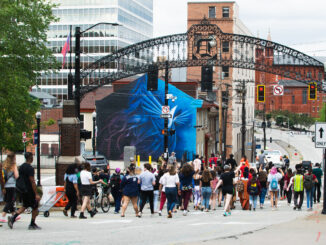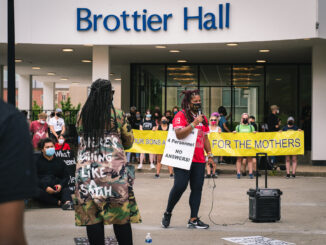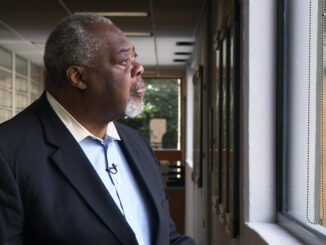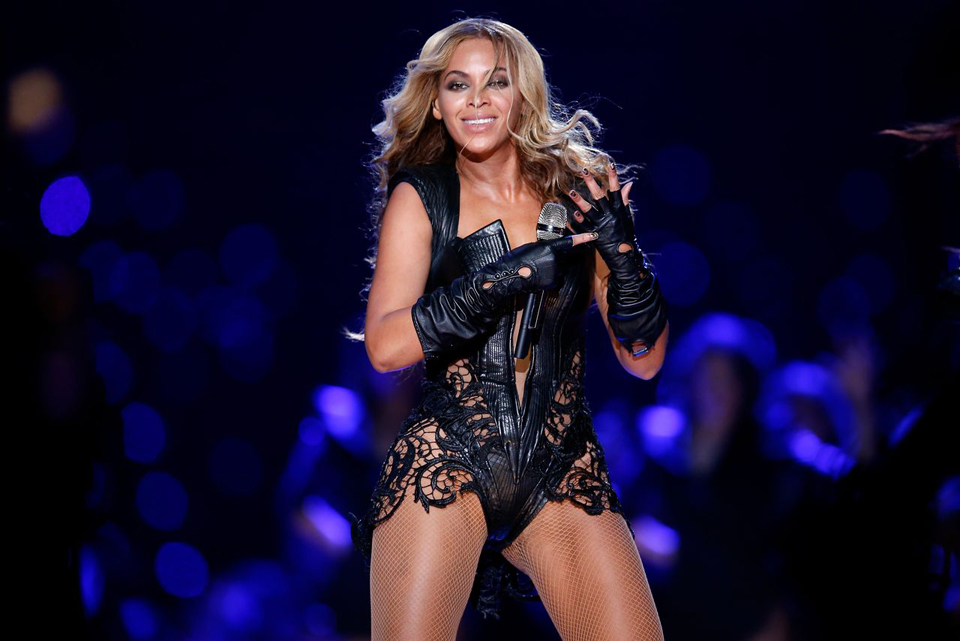
By Leah Devorak | layout editor
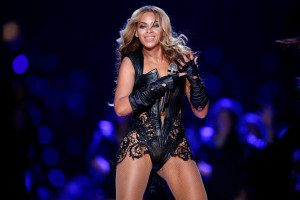
Appearing alongside Coldplay, Beyonce performed at Super Bowl 50. Her show has drawn both criticism and praise for its focus on racial issues.
This past weekend, Beyonce broke the internet, and with it, she also shattered the stigma that accompanies black empowerment.
“Formation,” the megastar’s latest single, dropped not coincidentally on Feb. 6, the 21st birthday of Trayvon Martin, an unarmed black teen who was shot and killed in 2012 by neighborhood watchman George Zimmerman. The song features lyrics celebrating her husband’s “Jackson Five nostrils” as well as her own “hot sauce in my bag swag” in order to teach blacks to be proud of who they are no matter what “ya’ll haters” say.
The powerfully raw lyrics are accompanied by a music video showcasing other somehow infamous staples of black culture – a New Orleans ghetto during Hurricane Katrina, riot police with their hands up, Victorian era house slaves, women in a weave shop – in order to further the lyrics’ message by showing blacks who they are, where they came from and where they can go from here.
“Formation” is a beautiful, powerful and tasteful political statement that shows exactly where Beyonce stands in the Black Lives Matter movement. It is just what the cause needs right now in order to quiet its still fairly large sea of critics.
The video’s subdued yet strong execution is a very important reason why the message was received so well. Instead of directly showing the violence and misery that blacks in this country have experienced, the “Formation” video implies it, using solemn faces, graffiti walls and sinking police cars in order to represent what everyone already knows occurred. Keeping the video vague was a great way to bring light to the problem without actually sparking any anger, which means that, for once, no one party will be blamed and a solution can actually be found.
The tame approach to message delivery cannot keep every critic quiet, though. One of the biggest complaints with “Formation” is that the video is not part of an anthem for black pride but rather turns the song into a mantra for police hate.
The culprit? As cited most often under #BoycottBeyonce on Twitter, it is the video’s aforementioned sinking cop car, as well as the riot officers who become so entranced with a dancing kid, they put their arms up. Oh, and let us not forget the Super Bowl 50 performance that debuted the song, either, which apparently supported the notoriously anti-police Black Panthers with its costumes.
All of these things should not be taken so negatively. It is highly unlikely that Beyonce is using the sinking car as some sort of sacrifice to cause fleets of officers to drown in a flood. As for the riot police, it is just as ridiculous to think the arm raising is anything but a call for peace on both sides of the line. And the costumes were nothing more than a tribute to Michael Jackson’s 1993 Super Bowl halftime performance to fit with this year’s homage to shows of the past.
And even if these things truly are speaking out against law enforcement, Beyonce still has a point. While not all police are heinous murderers, there are still a number who lose control and abuse their power – as well as the people around them. It may be that the individual officers themselves are flawed, or it may be that the current practices are simply too old and too harsh for modern times. But either way, there are definitely serious problems with law enforcement in this country, and Beyonce has a right to address it.
In a world where the most successful, influential people tend to pass over serious matters due to intense people-pleasing pressures, it is incredibly refreshing that Beyonce actually chose to take a stance and speak her mind. And it is even more refreshing to see that she does not care who does not like it – or at least that is the vibe her middle fingers gave off.
Don’t back down Beyonce. As queen, you have a right to speak.


